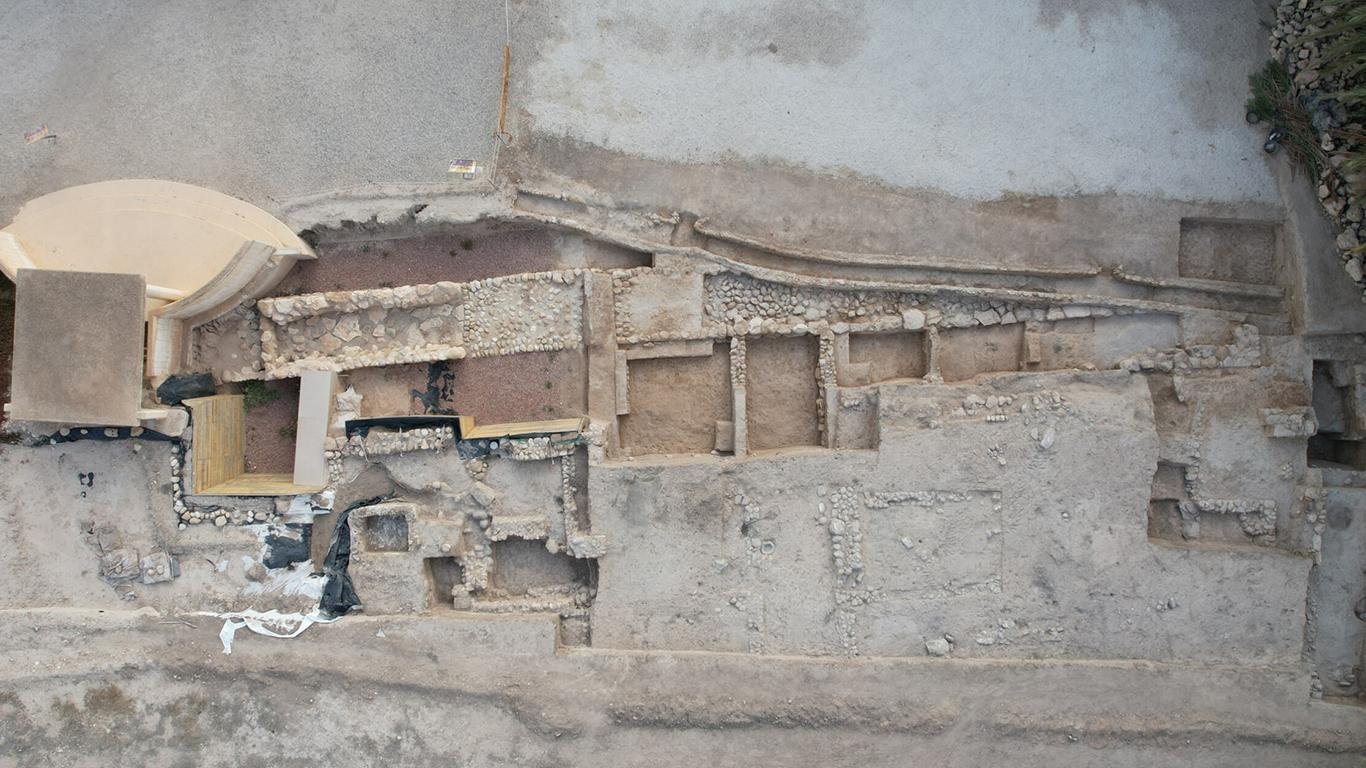Archaeologists from the University of Alicante and the University of Murcia have made significant discoveries in the ancient Iberian city of Ilici, located in modern-day Elche, southeastern Spain.
 Aerial view of the site. Credit: University of Alicante
Aerial view of the site. Credit: University of Alicante
The project тιтled “Damas y Héroes. Tras la Ilici ibérica” (Ladies and Heroes: Following the Iberian Ilici), led by Alberto Lorrio, Professor of Prehistory at the University of Alicante, and Héctor Uroz, Professor of Ancient History at the University of Murcia, has uncovered architectural remains that shed light on the complexity and development of Iberian society around 500 BCE.
The project, initiated in 2017, focuses on excavating and documenting the foundational city of Ilici. Previous knowledge of Ilici’s significance was based on notable findings such as the renowned sculpture of the Lady of Elche. However, the absence of architectural evidence limited understanding of the society’s development.
This recent discovery of architectural remains, including city walls and eight attached rooms belonging to houses, establishes Ilici as one of the principal cities in the Iberian region of Contestania. This finding confirms La Alcudia’s status as the first metropolis and major Iberian city in Contestania, spanning the present-day provinces of Alicante, Murcia, Albacete, and Valencia. Professor Lorrio underscores the importance of these findings, highlighting their greater significance compared to the discovery of individual sculptures.
 The Lady of Elche, a limestone bust that was discovered in 1897 at La Alcudia. Credit: Carole Raddato
The Lady of Elche, a limestone bust that was discovered in 1897 at La Alcudia. Credit: Carole Raddato
The well-preserved state of the remains is attributed to the ancient inhabitants’ decision to abandon the area due to recurrent flooding. Before departing, they filled the interiors of the houses, inadvertently preserving the structures and revealing unique construction techniques such as the use of molded mud or adobe walls.
The project, involving students and graduates, has concluded its excavation phase. Now, researchers are conducting laboratory analyses on the unearthed artifacts. Future campaigns aim to expand excavations to gain a comprehensive understanding of the earlier Iberian phases, presenting a unique challenge due to the site’s overlapping layers from different periods.
Professor Uroz said: “The enclave discovered in La Alcudia is the first metropolis, the first major Iberian city of Contestania, and the oldest. There is no older one of this magnitude.” The monumental scale and level of preservation of the findings reflect the power and sophistication of the Iberian elites of Contestania. The discovery provides essential context for understanding the societal dynamics of the time.
The Vice-Rectorate for Research of the University of Alicante funded the project, which was supported by the City Council of Elche and the Valencian Government.
University of Alicante





